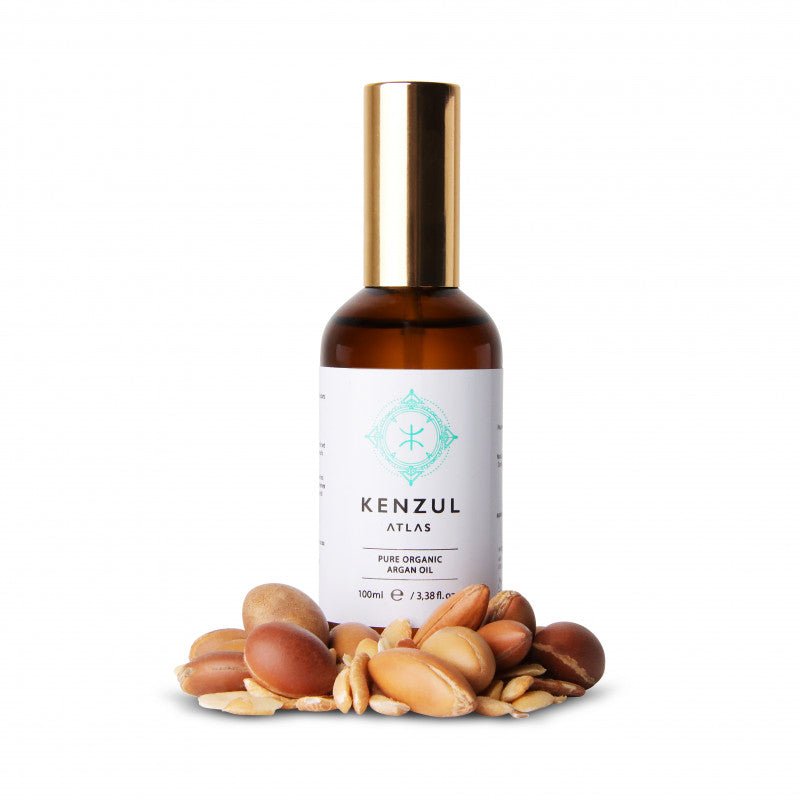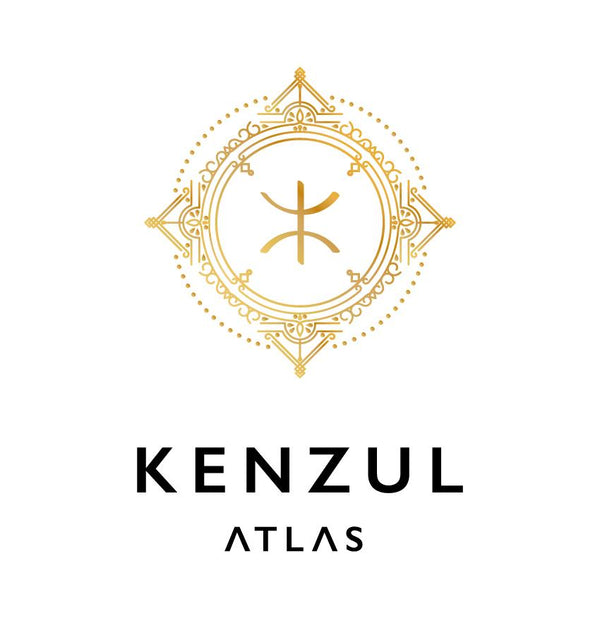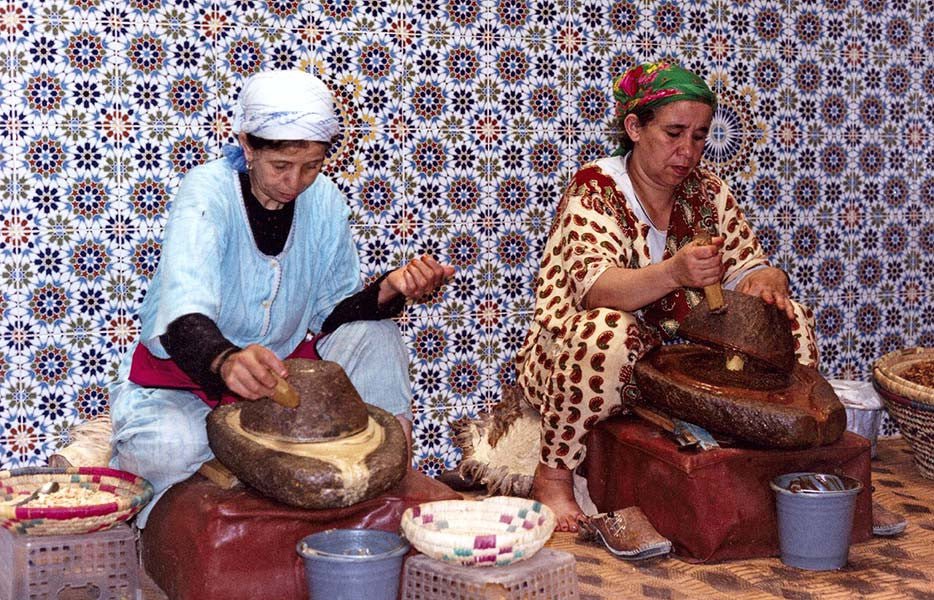A Berber woman squats next to her R'ha - a large stone used to extract argan oil - and rhythmically grinds the argan fruit, collecting the rich brown liquid. Moroccan women have been doing this for centuries, using the oil in everything from cooking to cosmetics.
Argan oil is an embodiment of the wealth of Morocco and takes you on an exotic journey. It naturally nourishes and enriches the skin and hair, giving them a radiant glow.
Argan Oil For Cosmetic Purposes:
The argan fruit is picked from the tree during the harvest period (July-August) and then left to dry for about seven days.
When the fruit is dry, the pulp is removed to obtain the argan nut (known as 'Akkayn' in Arabic). These nuts are then cracked open to reveal the core.
Extracting argan oil from the argan nut is a labour-intensive manual process:
- It takes 2 days to crack only 1.5 kg of argan nuts and extract the core.
- The process is physically challenging, as women traditionally use stones to crack the argan nuts.
Unlike culinary argan oil, which is first roasted, cosmetic argan oil much more needs to be processed into a paste, which is traditionally made with a hand mill made of stone. This part of the process is particularly labor intensive for the Berber women.
The argan paste is finally further pressed to produce the argan oil.
It takes an amazing 25-30 kg of argan nuts to produce just one liter of argan oil! This helps you understand how precious this oil is.
The benefits of argan oil:
Argan oil is known for its many benefits for skin, hair and nails. Some of the most notable benefits are:
- Deeply hydrates and nourishes the skin, leaving it feeling soft and supple.
- Strengthens and repairs damaged hair, leaving it shiny and healthy.
- Improves skin elasticity and helps to reduce signs of aging.
- Softens and nourishes cuticles, leading to stronger and healthier nails.
Argan oil is a versatile and effective natural product that has been valued for centuries by the Berber people of Morocco. Its manual and labour-intensive processing is testament to the commitment to maintaining quality and
the authenticity of this special oil.
The sustainable and ethical aspects of argan oil:
Argan oil is not only great for your skin and hair, but it also has a positive impact on the environment and local communities in Morocco:
- The argan tree plays a vital role in preventing desertification and preserving biodiversity in the region.
- Argan production provides employment and income for Berber women, who traditionally extract the oil by hand.
- Sustainable and ethical argan oil production helps protect the argan tree and preserve this valuable resource for future generations.
If you are looking for a natural and versatile beauty product with a rich history and numerous benefits, argan oil is the perfect choice. By choosing an ethically sourced and certified organic argan oil, you not only contribute to your own well-being, but also that of the planet and the Moroccan communities that depend on this 'liquid gold' tradition.
So what are you waiting for? Add argan oil to your beauty routine and discover for yourself the many benefits of this special oil from the heart of Morocco.



1 comment
Really informative post !